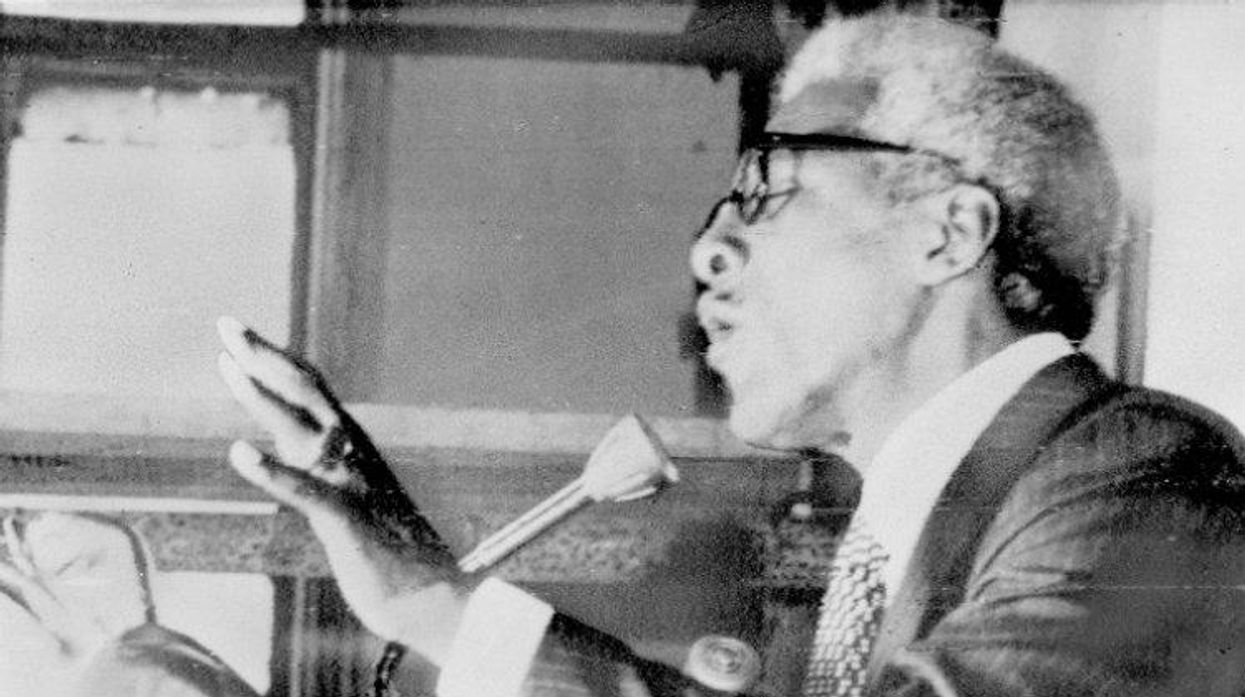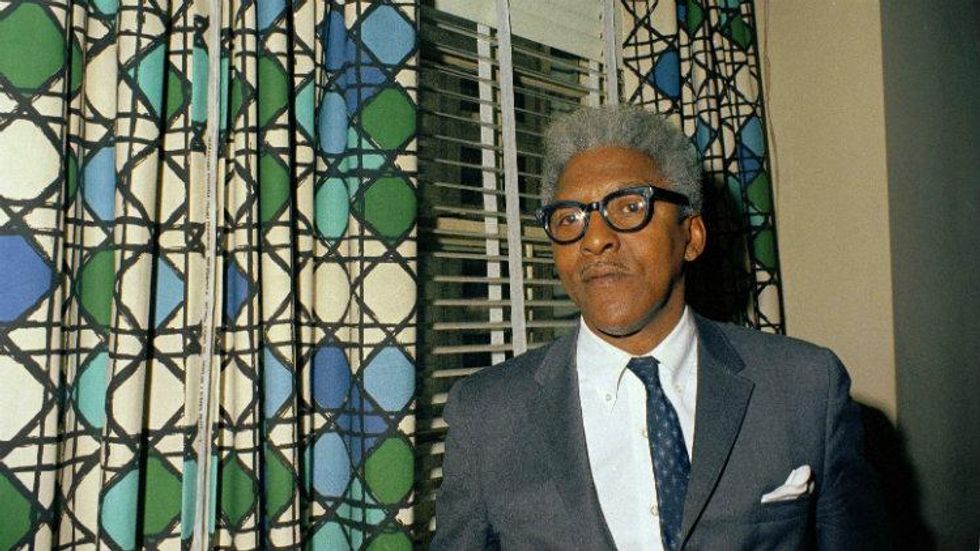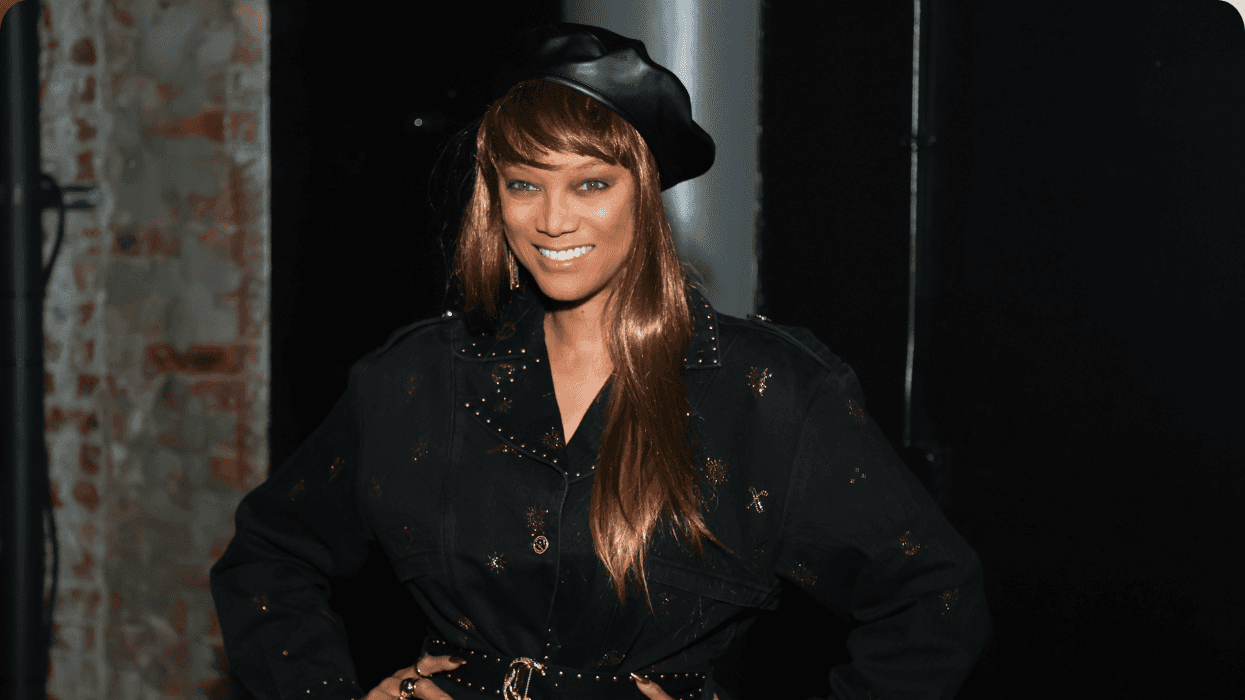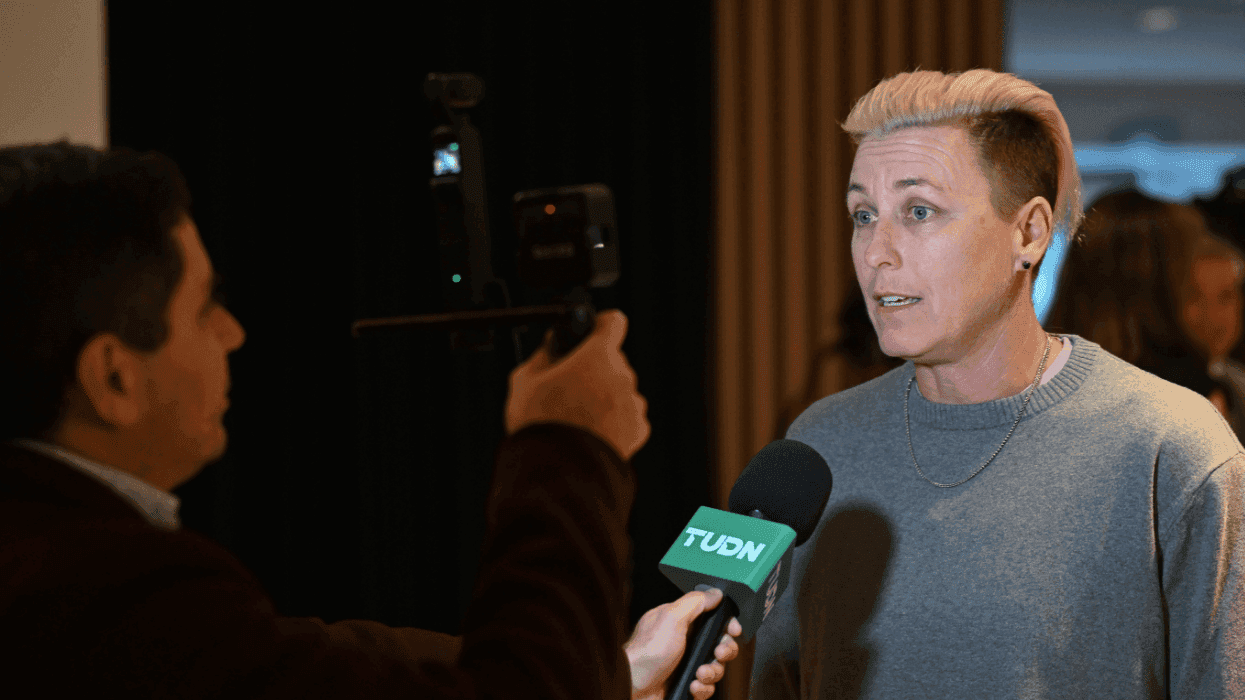During this year's Pride month we'll be sharing weekly history lessons about prominent LGBTQ figures or notable events that have fed into and furthered the fight for LGBTQ rights. In this current presidential administration we find our community under attack, with attempts to strip away hard-won rights and a leader that won't even recognize June as national Pride month. It is imperative to remember where we came from if we want to know where we're going.
It's no wonder Bayard Rustin grew up with a mind for activism and civil rights. Born in 1912 in West Chester Pennsylvania, Rustin's mother was a member of the National Association for the Advancement of Colored People and leaders from the organization like W.E.B. Du Bois and James Weldon Johnson were frequent guests in the Rustin house.
Having campaigned against the racially discriminatory Jim Crow laws of the South at a young age, organizing strikes in his college years, and participating in the first Freedom Rides in 1947, Rustin is best-known for his contributions to the 1963 March on Washington, where Dr. Martin Luther King Jr. delivered his iconic "I Have A Dream" speech in front of the Lincoln Memorial.
Though he didn't fight specifically for gay rights until later in his life, Rustin was forced to publicly address his sexuality, having been arrested for engaging in public sex with male prostitutes. Rustin faced criticism not only from opponents of the civil rights movement but from within as well, being labeled as an "immoral influence."
In 1986 Rustin noted that the gay community would be looked to next to gauge the direction of social evolution in his speech, "The New N****rs Are Gay:"
"Today, blacks are no longer the litmus paper or the barometer of social change. Blacks are in every segment of society and there are laws that help to protect them from racial discrimination. The new "n****rs" are gays. ...It is in this sense that gay people are the new barometer for social change. ...The question of social change should be framed with the most vulnerable group in mind: gay people."
While the struggle of black people in America was the primary focus of his life, Rustin's work in the fight for racial equality undoubtedly fed into the gay rights movement. In his 1986 essay "From Montgomery to Stonewall," Rustin recognized the spark in the Stonewall Riots that also flickered to life in the case of Rosa Parks.
"That was the beginning of an extraordinary revolution, similar to the Montgomery Bus Boycott in that it was not expected anything extraordinary would occur. As in the case of the women who left the Russian factory, and in the case of Rosa Parks who sat down in the white part of the bus, something began to happen, people began to protest. They began to fight for the right to live in dignity, the right essentially to be one's self in every respect, and the right to be protected under the law. In other words, people began to fight for human rights. Gay people must continue this protest."
And continue we do. In the era of Trump it feels as if the LGBTQ community is regressing to a time when it was a statement just to be seen. During this Pride month and throughout the rest of the year, remember the people who took up the fight for our rights throughout the past decades, and realize that, at some point, the time may come for us to do the same.































